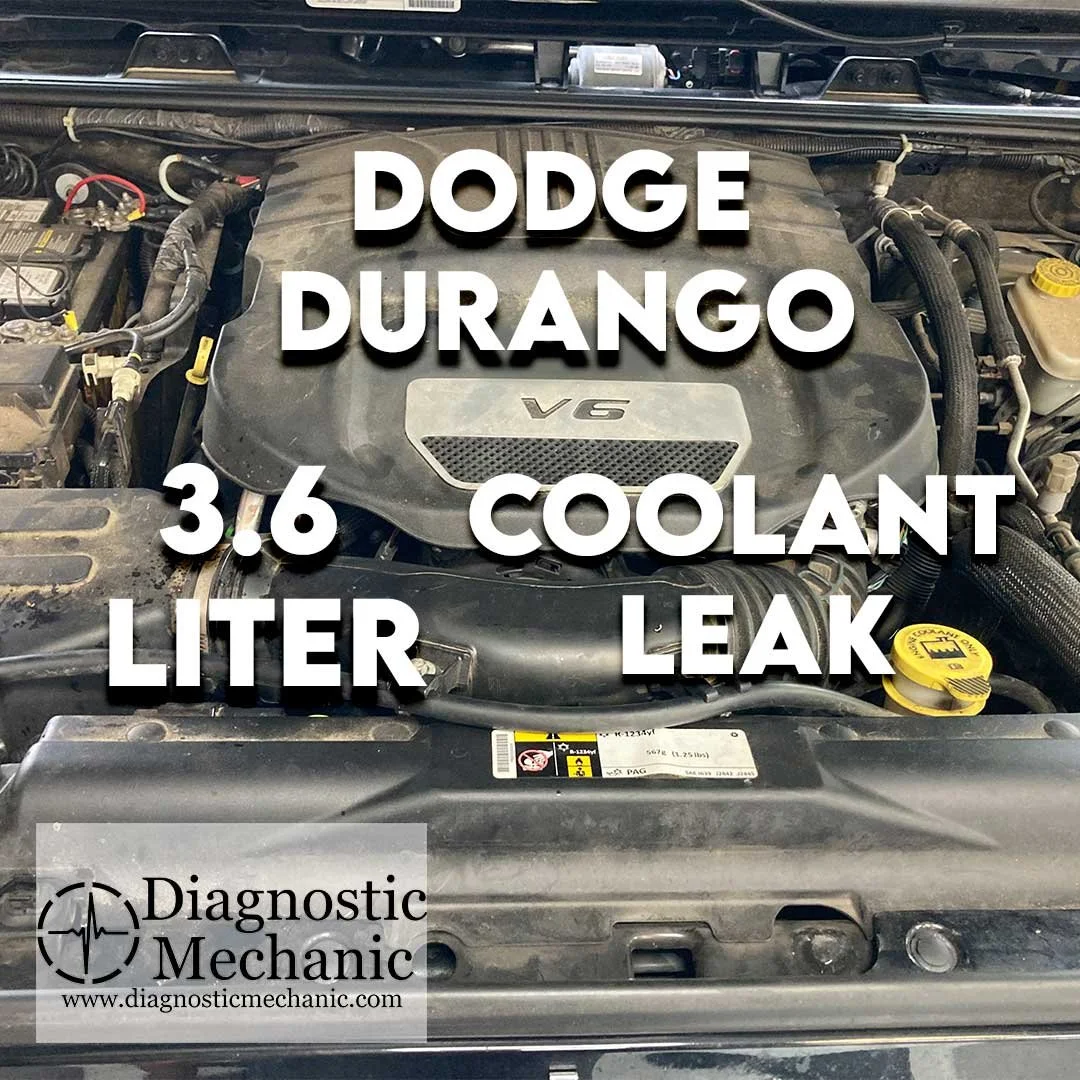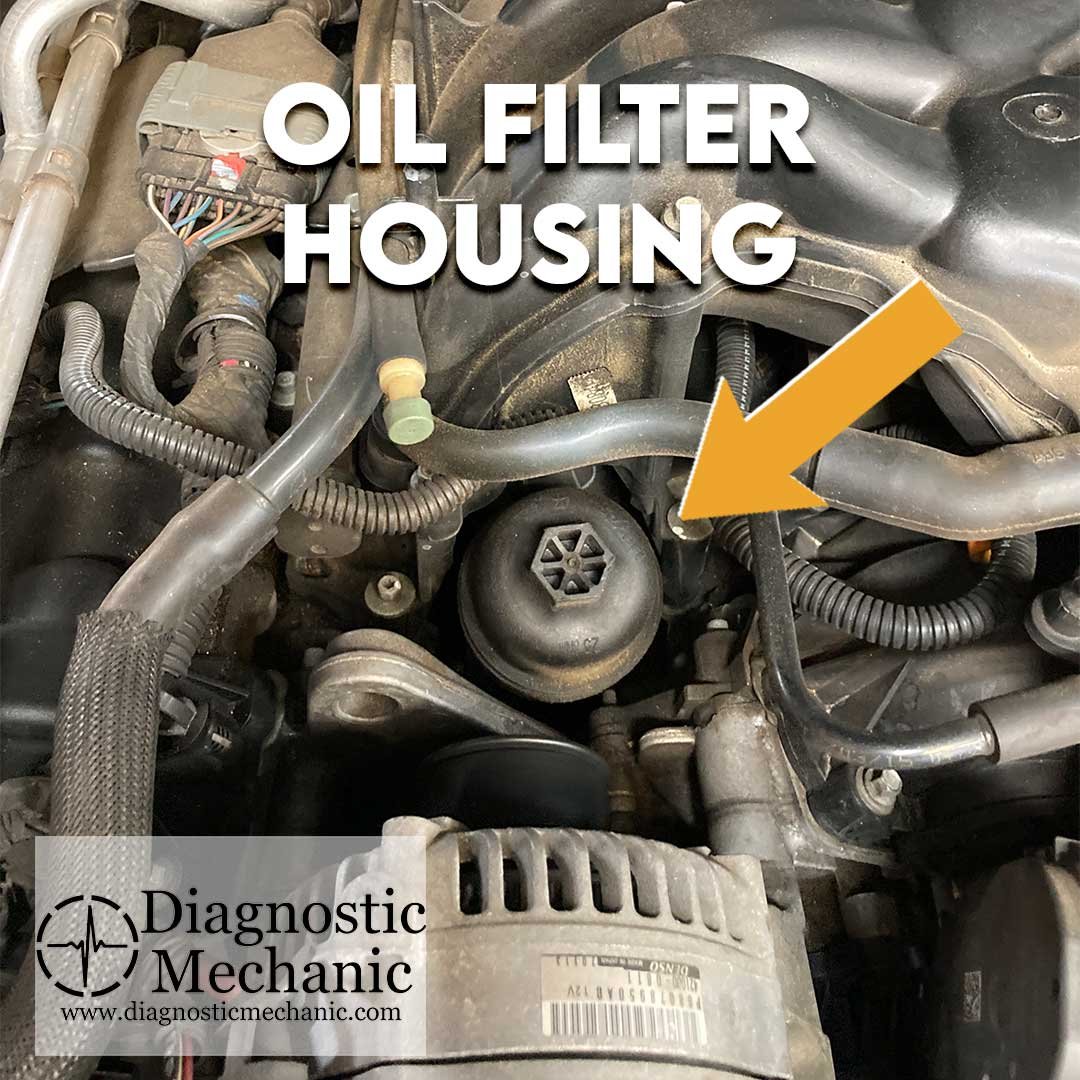Dodge Durango With 3.6L Losing Coolant (Look HERE first)
Affiliate Disclosure: As an Amazon Associate, we may earn commissions from qualifying purchases from Amazon.com.
Here is a list of tools I use every day at the shop. Let me know if you use them too in the comments!
The 3.6-liter engine from Chrysler has become notorious for leaks, especially coolant. Coolant leaks can cause overheating, loss of heat in the cabin, and irreversible damage to the engine. In this article, we will look at a common coolant leak in the 3.6-liter engine.
Which model of Dodge Durango has the 3.6-liter engine?
The 3.6-liter engine was introduced in the 2011 Dodge Durango models and is available through the present models.
Frequently Asked Question:
Where do I find wiring diagrams and step-by-step repair procedures for Dodges?
The best online resource I use is Alldatadiy.com.
I used it for this case study to find the correct procedure for this Dodge Durango.
What is the cooling system?
A vehicle uses coolant to keep the engine from overheating. It flows through passages in the engine and disperses the heat. This keeps the temperature of the engine in a specific range.
There are many parts of the cooling system, including the radiator and thermostat, that have coolant flowing through it.
What is a coolant leak?
If a part of the cooling system becomes weak, coolant can leak out.
O-rings and gaskets are the most common issues with coolant leaks, but components of the cooling system can also become cracked and leak.
Why is my Dodge Durango leaking coolant?
Dodge Durango and the 3.6-liter engines have issues with leaks coming from the oil cooler/oil filter housing.
The oil cooler/oil filter housing is part of the cooling system and has coolant flowing through it.
The oil cooler/oil filter housing is designed to cool the engine oil to a certain temperature. It does this by dispersing heat throughout the oil cooler.
A common symptom of this leak is coolant running down the back of the engine onto the transmission.
Here is a link to the oil cooler/ oil filter housing. Before ordering, make sure it is the correct one for your Dodge Durango.
What can happen if I lose coolant?
Here is a list of things that can happen if you lose all of your coolant.
You will lose heat inside your vehicle
A “low coolant” message may pop-up
Your vehicle will overheat
Where is the oil cooler/oil filter housing located?
The oil cooler/oil filter housing is located in the “V” of the 3.6-liter engine. It is below the lower intake manifold.
How do I stop my Dodge Durango from leaking coolant?
The only way to truly solve this coolant leak is to replace the oil cooler/oil filter housing.
Can you still drive with a coolant leak?
Driving with little to no coolant is bad for the engine.
The reason is that the coolant keeps the engine from overheating.
If an engine overheats, it can potentially be destroyed.
Disclaimer and Disclosure:
Due to factors beyond the control of DiagnosticMechanic.com, it cannot guarantee against unauthorized modifications of this information, or improper use of this information. DiagnosticMechanic.com assumes no liability for property damage or injury incurred as a result of any of the information contained in this website. DiagnosticMechanic.com recommends safe practices when working with power tools, automotive lifts, lifting tools, jack stands, electrical equipment, blunt instruments, chemicals, lubricants, or any other tools or equipment seen or implied in this website. Due to factors beyond the control of DiagnosticMechanic.com, no information contained in this website shall create any express or implied warranty or guarantee of any particular result. Any injury, damage or loss that may result from improper use of these tools, equipment, or the information contained in this website is the sole responsibility of the user and not DiagnosticMechanic.com.
DiagnosticMechanic.com is a participant in the Amazon Services LLC Associates Program, an affiliate advertising program designed to provide a means for sites to earn advertising fees by advertising and linking to Amazon.com. In many of our case studies, articles, and tool reviews, we may earn a small commission when readers purchase products through our links.



